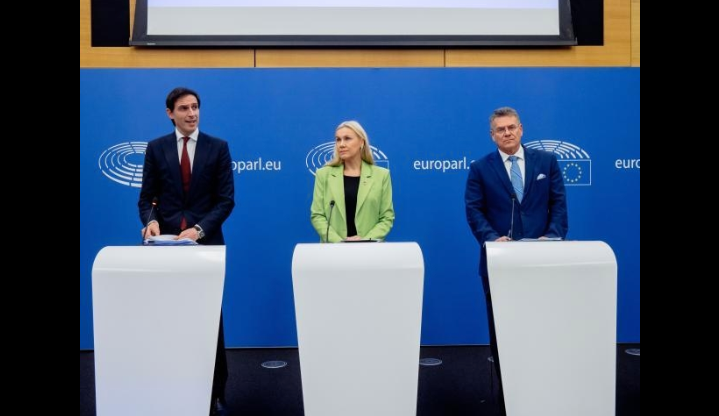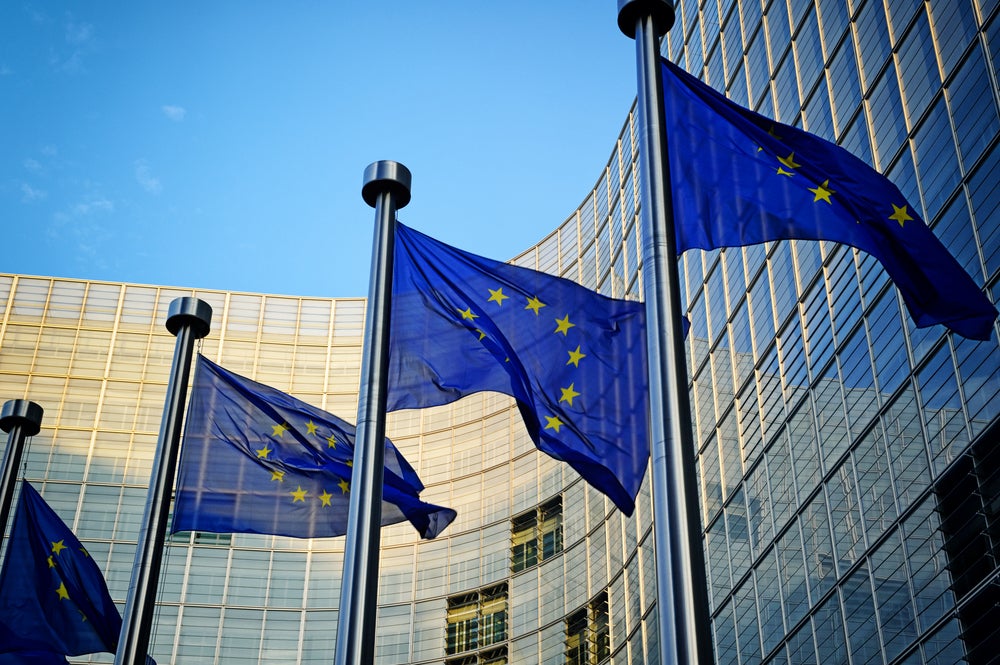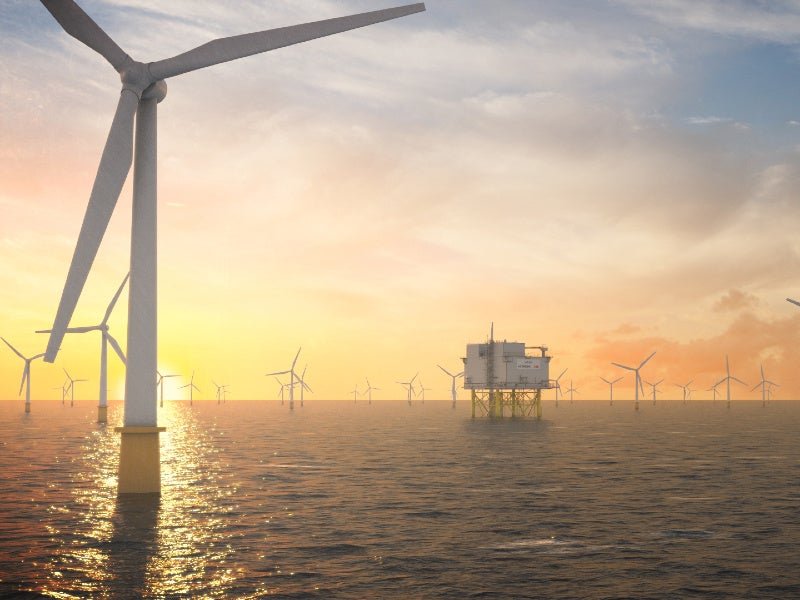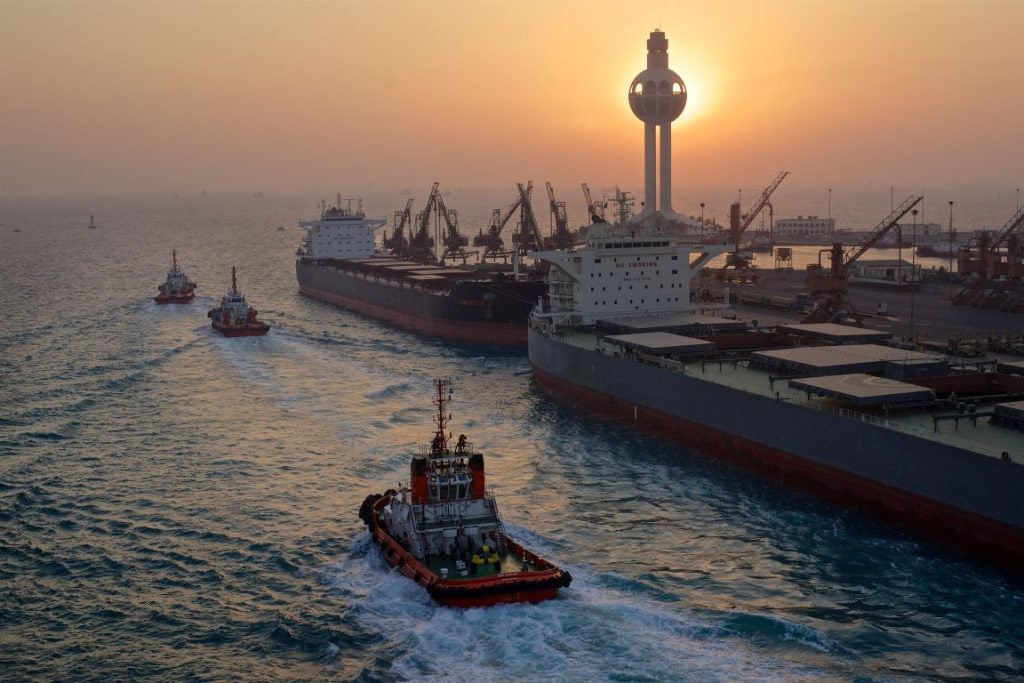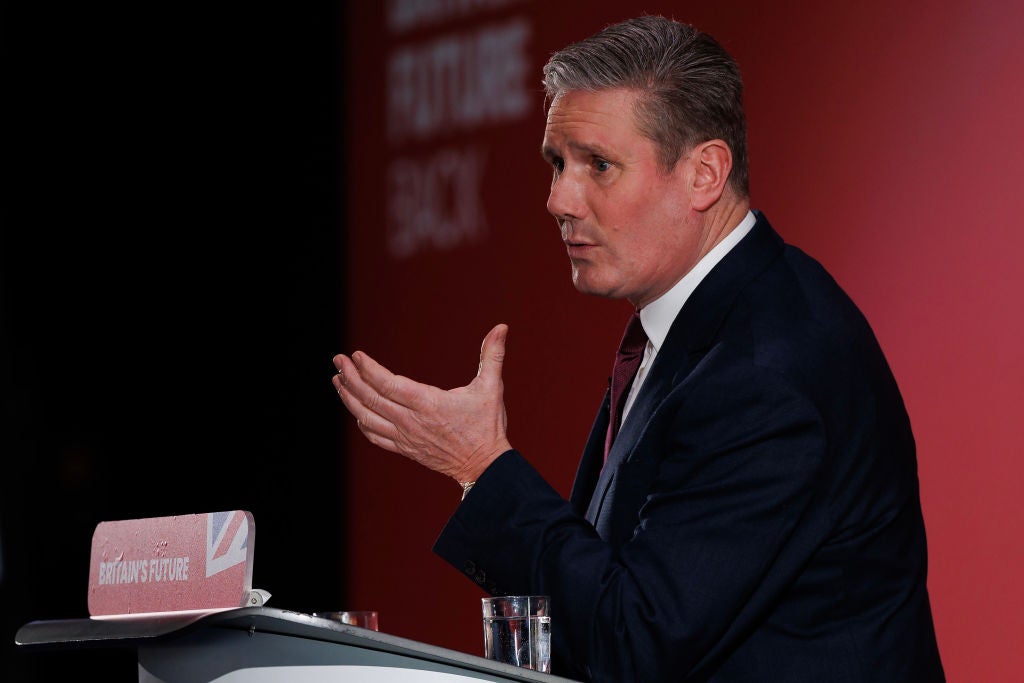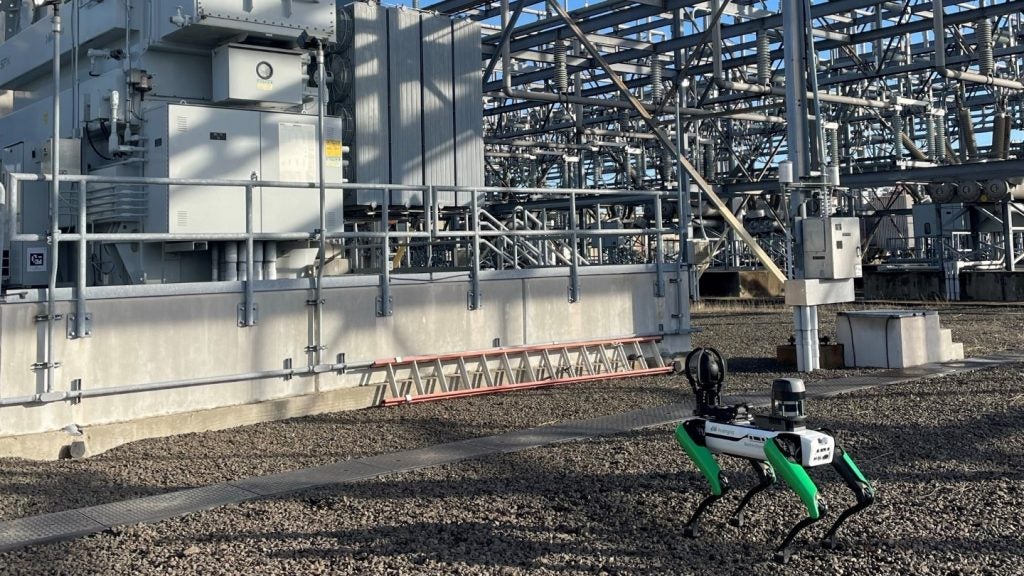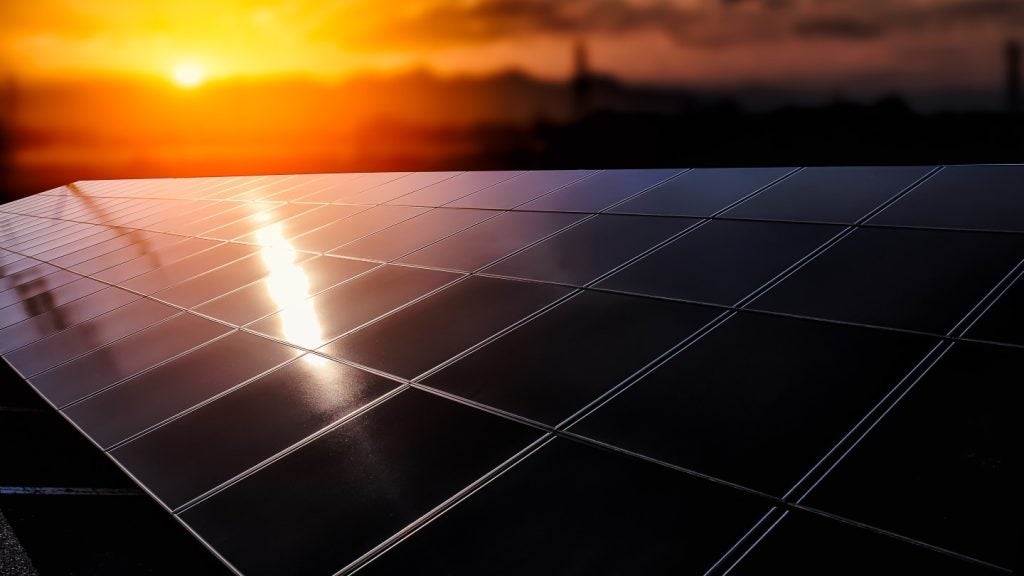With political pressure on European Commission President Ursula von der Leyen to ease up on climate action as she seeks a second term, climate campaigners were pleased this week to see the Commission stick to its initial proposal for a 90% emissions-reduction target (based on 1990 levels) for the EU for 2040. The figure is in line with the advice of the European Scientific Advisory Board on Climate Change and the EU's commitments under the Paris Agreement.
However, there is frustration with three elements of this week’s announcement. First, von der Leyen has chosen to only recommend this for a new Commission next autumn to turn into a legislative proposal. Following the European parliament elections in June, national leaders will decide whether to reappoint von der Leyen as head of the next Commission. Traditionally, the Commission is not supposed to put forward any major proposals in the final months of a term, but some argued that the urgency of climate action demanded otherwise – particularly with the possibility of the parliament lurching to the right.
Second, the final version of the recommendation has dropped the words “at least” before the 90% – even though the 2030 target calls for “at least” 55% to allow room for more ambition further into the future. Asked about the change, EU climate commissioner Wopke Hoekstra said on Tuesday this was a "deliberate choice" because "it gives a clarity... you make sure you link your ambition with the art of the possible”.
Third, the recommendation does not include a phase-out date for fossil fuels. Speaking alongside Hoekstra at the press conference presenting the document on Tuesday, EU energy commissioner Kadri Simson said phase-outs are already envisioned as part of the RePowerEU plan to reduce dependence on Russian gas, adopted in 2022. “In some sectors, mainly as a feedstock for industry, we will need some fossil fuels,” she said. “Overall, we will cut our fossil fuel consumption by 80% compared to the year 2021.”
However, some campaigners fear the lack of a clear plan for phasing out fossil fuels means the EU's 2040 climate target will not be met. “You can set targets to cut greenhouse gases [GHGs] as high as you like, but without a clear plan to phase out the fossil fuels that are producing them they simply aren’t credible,” said Dominic Eagleton, a senior fossil fuels campaigner at Global Witness, in a press release.
“It’s like building a bike without pedals, how are you going to power it? The European Parliament and Member States need to recognise this and push for a rapid and just transition plan for a full phase-out of fossil fuels, starting with a 2035 end date for gas.”
The cost of a 90% EU climate target for 2040
Simson said that a 90% emissions reduction will require €670bn ($722.4bn) in energy system investment between 2030 and 2040. That may seem like a lot, she said, but in 2022 alone Europe spent €380bn on fossil fuel subsidies and €640bn on fossil fuel purchases. The Commission’s recommendation estimates that the additional spend for 2030–40, compared with 2011–20, will amount to 1.5% of gross domestic product a year, with the largest part coming from the private sector. On top of energy system investment, €870bn will be needed each year in transport system investment.
The recommendation calls for a phase-out of coal by 2040, and a full decarbonisation of the electricity sector should also occur by that year. Transport emissions should decrease by 80% by 2040. If all this is achieved, it would reduce the EU’s fossil fuel imports bill by around €2.8trn over the period 2031–50 (compared with what the EU imported between 2011 and 2020), more than making up for the investments made.
The recommendation also endorses continued investment in carbon capture, use and storage (CCUS), as well as nuclear power, to meet the EU's 2040 climate target. A strategy aiming to establish a comprehensive framework on 'industrial carbon management' was launched together with the recommendation, as well as an Industrial Alliance to facilitate stakeholder cooperation to accelerate the deployment of small modular reactors. This has prompted mixed reactions. Joop Hazenberg, EU director of the Carbon Capture and Storage Association, called the Commission’s industrial carbon management strategy “an important leap forward towards establishing CCUS in Europe”. “We applaud the European Commission for championing CCUS and fostering an environment conducive to increased investments in European projects,” he said.
“The European Commission’s carbon capture ambition is significant at around 450 million tonnes of CO₂ by 2050, of which around 40% will come from direct air capture alone, the most expensive carbon capture process,” said Andrew Reid, an energy transition analyst with the Institute for Energy Economics and Financial Analysis, a think tank. However, Linda Kalcher, executive director of the consultancy Strategic Perspectives, said the Commission is “betting on the wrong horse” by “proposing such heavy reliance on abatement technologies”. Lili Fuhr from the Washington, DC-based Center for International Environmental Law accused the Commission of supporting “the fossil fuel industry’s favourite delay tactic”. “‘Carbon management’ is a new code word for climate inaction and fossil fuel subsidies,” she said.
Welcome ambition
Overall, the reaction to the EU's 2040 climate recommendation has been positive but tempered with an understanding that the next Commission can choose whether or not it wants to follow the advice. “Endorsing a 90% GHG emissions-reduction target by 2040 is a positive step in the right direction and shows that facing the multiple crises of our time requires stepping up decarbonisation efforts and building on the legacy of the Green Deal,” said Romain Pardo, manager of Corporate Leaders Group Europe. “But this can only be a first step; enabling policies that support communities and businesses through the transition will be essential.” He added that "a concrete policy package should guide its implementation and the phase-out of fossil fuels” and that the next EU Commission and parliament should “take into account the scientific guidance of the European Scientific Advisory Board on Climate Change and consider 90% as the lowest rather than the highest level of ambition”.
Chiara Martinelli, director of the campaign group CAN Europe, also lamented the loss of the “at least” language – and noted that the next Commission could still choose to add it. “Increased ambition is of course welcomed – but a 90% reduction target is still not enough to properly align with the 1.5°C goal,” she said. Recent research from CAN Europe indicates that the EU aligning with a net-zero climate goal by 2040 now would yield economic benefits of at least €1trn by 2030, she emphasised. "By opting for a less ambitious stance, the European Commission is missing a golden opportunity to access these benefits.”
National governments and industry associations have welcomed the recommendation, particularly for its emphasis on keeping climate-friendly industry competitive with other parts of the globe. Speaking at the press conference on Tuesday, EU Green Deal chief Maros Sefcovic said the Green Deal now needs to become an "industrial decarbonisation deal”. “The risk of de-industrialisation and social tension is very real,” he said. “For us, Europe’s industrial leadership and socially just, green transition are not only two sides of the same coin, but they are imperatives.”
Dutch climate minister Rob Jetten welcomed the link between climate and industrial policy. “These are increasingly reinforcing each other. Clear goals create opportunities for new growth markets in a sustainable, circular economy. There seems to be broad support among member states for this ambition.” Germany’s State Secretary for International Climate Action, Jennifer Morgan, praised the plan saying it would create "more investment security" and help "contribute to making the EU a production centre for climate-friendly technologies”.
The Polish Government, which has historically stood in the way of ambitious EU climate action amid sceptical public opinion, was more cautious – even with the change in government from the far-right PiS to a majority centre-right coalition led by Donald Tusk. "This communication is a starting point for public debate, not a binding legal document," said Poland's vice-minister for climate and environment, Urszula Zielińska from the Greens, in a statement. "It does not require any new targets for 2040 to be set [by Poland] right now. Following the publication of the Commission's communication, we will analyse and conduct a thorough and broad public consultation. For now, we are focused on meeting the climate commitments that have already been set, like the 2030 target of 55% emission reduction."
Business groups gave a cautious welcome to the EU's 2040 climate plan but with warnings. Germany’s main industry association, the BDI, called the plan “highly ambitious” and said it “must not come at the expense of the competitiveness of the European economy", adding that it will require enormous investment in a short time. Industry association European Aluminium warned that Europe's climate ambitions should not be achieved "at the expense of its manufacturing capacity nor increase import dependencies across the aluminium value chain”. "The link between climate, trade and industrial policy must be strengthened and at the forefront of the agenda of the next EU Commission,” it added.
Next-term worries
Opinion polls predict that far-right and nationalist parties could win more than a third of the seats in June’s European Parliament election, which could prevent centrist parties from forming a governing majority as they have in every election since they started in 1979. Manfred Weber, the head of largest party in the parliament, the centre-right European Peoples Party (of which von der Leyen is a member), has seemed open to forming a right-wing majority with the far right instead. Should the June vote result in such a majority, von der Leyen’s Green Deal may become a liability for her in securing a second term. Although the 27 EU national leaders appoint the Commission president by a majority vote, that person must then be able to secure a majority confirmation vote by the European Parliament. A right-wing majority in parliament may require national leaders to appoint someone further to the right – and against further climate action – than von der Leyen.
Such a scenario would likely mean that this week’s recommendation is never translated into a legislative proposal. Even if President von der Leyen secures a second term, the political headwinds she is facing could cause her to indefinitely delay a legislative 2040 proposal. She has already shown a willingness to jettison parts of her Green Deal this month in the face of violent protests by farmers across Europe, suspending hard-won greening requirements in the Common Agricultural Policy and withdrawing a proposal to reduce pesticide use. This could only be the beginning. “We’re concerned to see attempts from the far right to exploit and use [farmers’] anger and the mobilisations to drive its own agenda, including denying climate change, calling for lower environmental standards and blaming migrant workers in rural areas,” said NGO European Coordination Via Campesina in a statement following the recommendation’s publication.
“The next European Parliament needs to be one that is willing to stand up for a holistic social-ecological vision,” said Martinelli from CAN Europe. “We will be working tirelessly ahead of the elections to help citizens make informed choices on climate and social issues when heading to the ballot box.”


